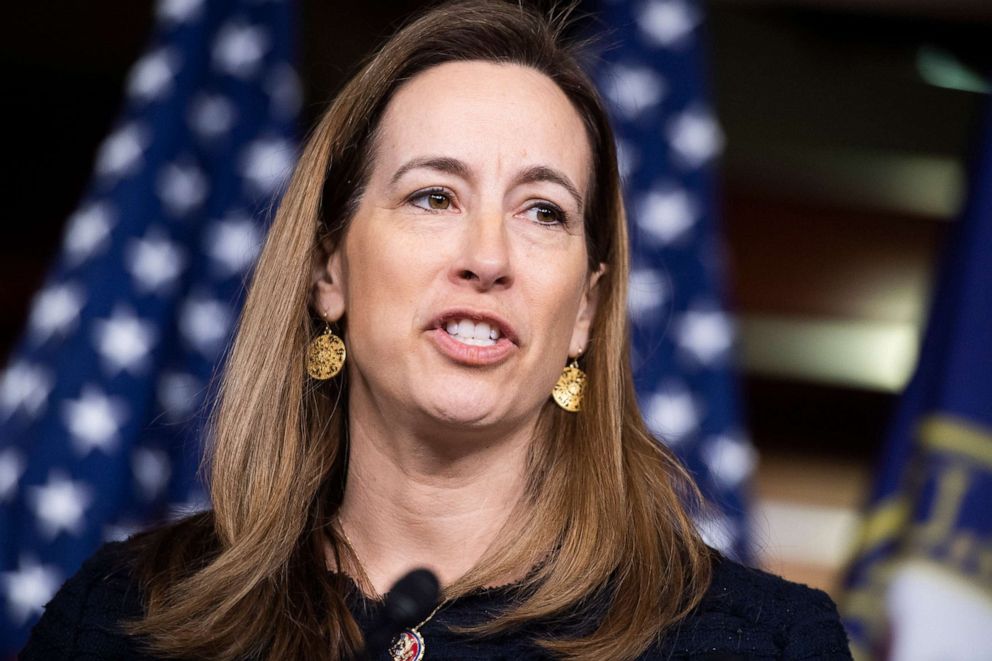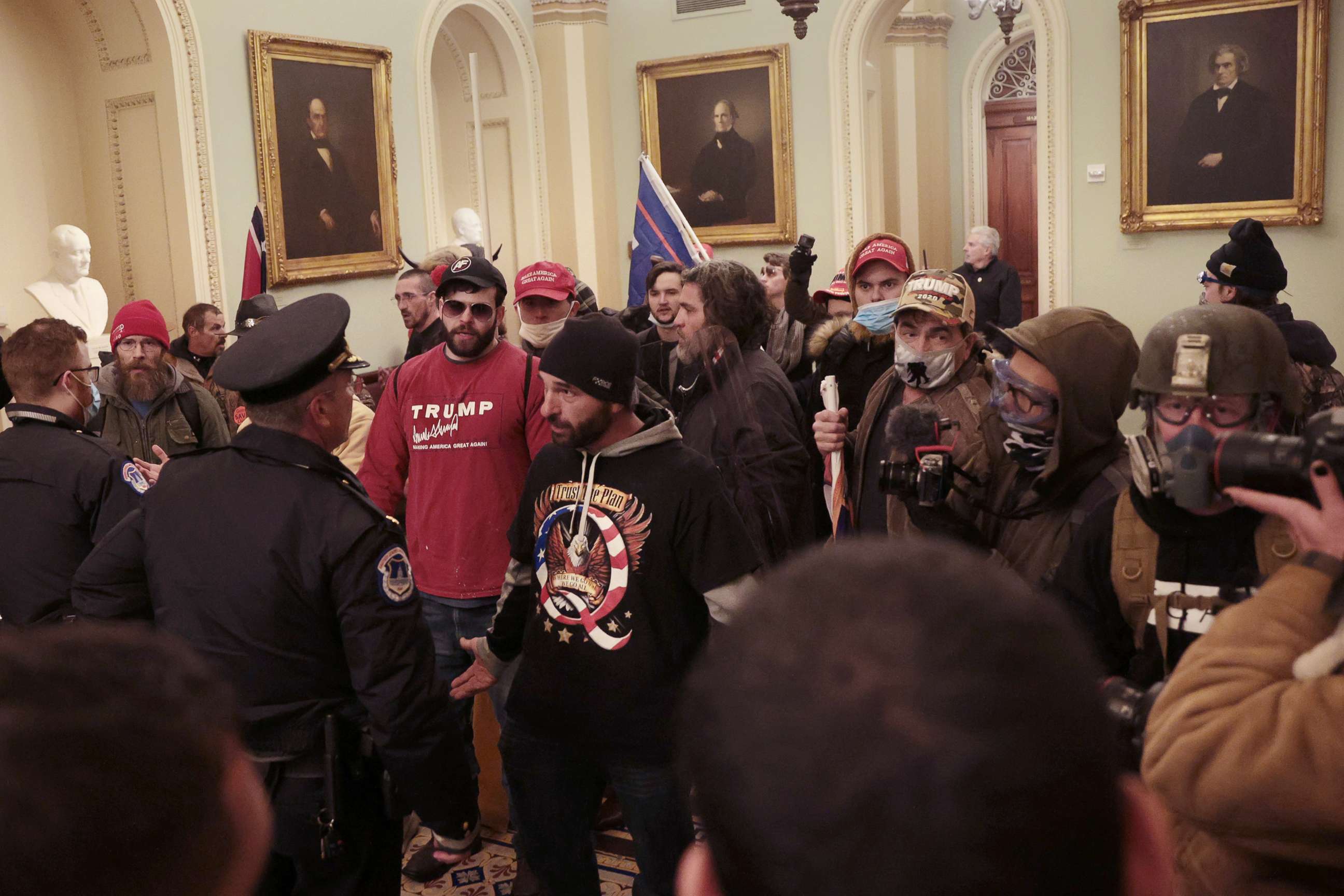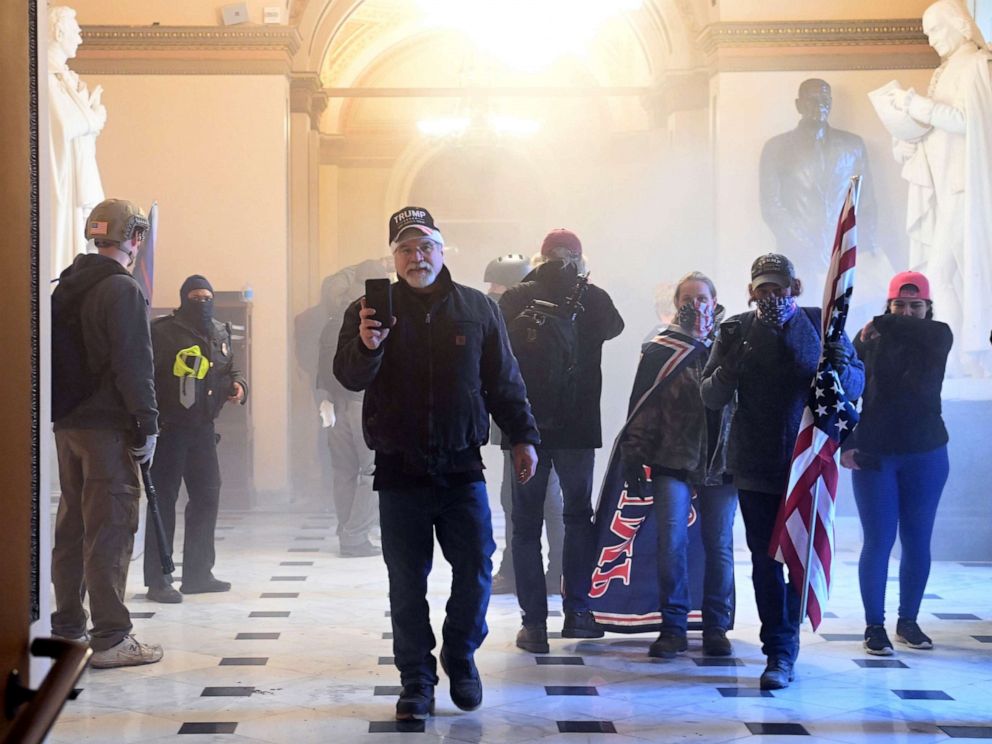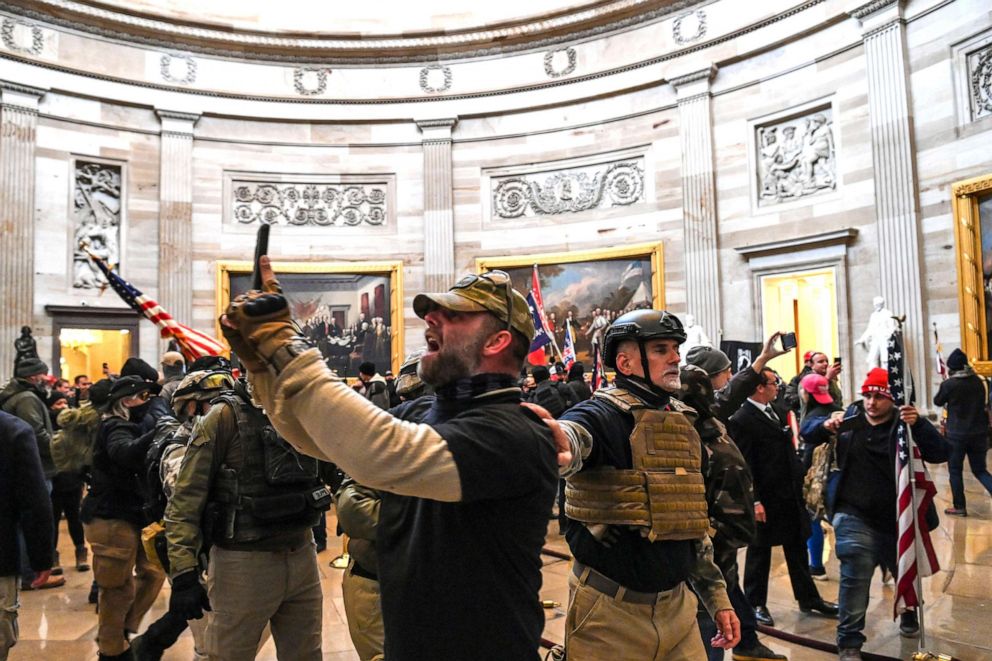Democrats demand probe into nature of Capitol tours on day before assault
They claim "suspicious behavior" on the day before the attack.
Congressional Democrats have demanded an investigation into what they call "suspicious behavior and access" for some visitors the day before the Capitol assault, alleging that unnamed lawmakers led "an extremely high number of outside groups" through the building on what they say could have been "reconnaissance" tours.
During a Facebook Live on Tuesday, New Jersey Democratic Rep. Mikie Sherrill claimed that she witnessed unnamed members of Congress lead groups of people through the Capitol on a "reconnaissance" tour on Jan. 5, though it is common for lawmakers to guide constituents through the building.
Sherrill also alleged that Republicans "abetted" President Donald Trump’s effort to overturn the results of the election, promising that she would "see they are held accountable, and if necessary, ensure that they don't serve in Congress."

The New Jersey Democrat, a former U.S. Navy helicopter pilot and former federal prosecutor, joined more than 30 lawmakers signing a letter Wednesday to request an investigation from the acting House sergeant-at-arms, the acting Senate sergeant-at-arms, and the United States Capitol Police.

The letter does not name any members or make a specific reference to Republicans, nor does it make any specific allegation that members leading the tours were privy to any plans to attack the Capitol the next day. Three senior GOP leadership aides and a public information officer for the U.S. Capitol Police did not respond to a request for comment.
"Many of the Members who signed this letter, including those of us who have served in the military and are trained to recognize suspicious activity, as well as various members of our staff, witnessed an extremely high number of outside groups in the complex on Tuesday, January 5," the lawmakers wrote. "This is unusual for several reasons, including the fact that access to the Capitol Complex has been restricted since public tours ended in March of last year due to the pandemic."

It is not uncommon for lawmakers to invite avid supporters on tours of the Capitol, but Democrats have asked congressional law enforcement authorities whether any of the individuals known to visit the Capitol complex on Jan. 5 were being investigated for participating in the assault the next day.
The Democrats who signed the letter collectively contend that the tours being conducted on Jan. 5 "were a noticeable and concerning departure" from procedures put in place as of March 2020 that limit the number of visitors to the Capitol. These tours were so concerning to Democrats that they were reported to the sergeant-at-arms on Jan. 5, they wrote.
"The visitors encountered by some of the Members of Congress on this letter appeared to be associated with the rally at the White House the following day. That group left the White House and marched to the Capitol with the objective of preventing Congress from certifying our election," the letter states without citing specific examples of people charged with engaging in the melee who they believe were on tours on January 5. "Members of the group that attacked the Capitol seemed to have an unusually detailed knowledge of the layout of the Capitol Complex. The presence of these groups within the Capitol Complex was indeed suspicious. Given the events of January 6, the ties between these groups inside the Capitol Complex and the attacks on the Capitol need to be investigated."

As part of the investigation, the lawmakers ask congressional law enforcement authorities whether logs of visitors are inspected and collected, as well as whether members were required to sign in guests to the Capitol on Jan. 5.
They also inquired whether any additional law enforcement agencies have requested access to these logs, and questioned what circumstances would need to occur to deny a visitor from entering the Capitol, whether there are video logs from Jan. 5, and if facial recognition software is used for visitors entering the Capitol complex.




